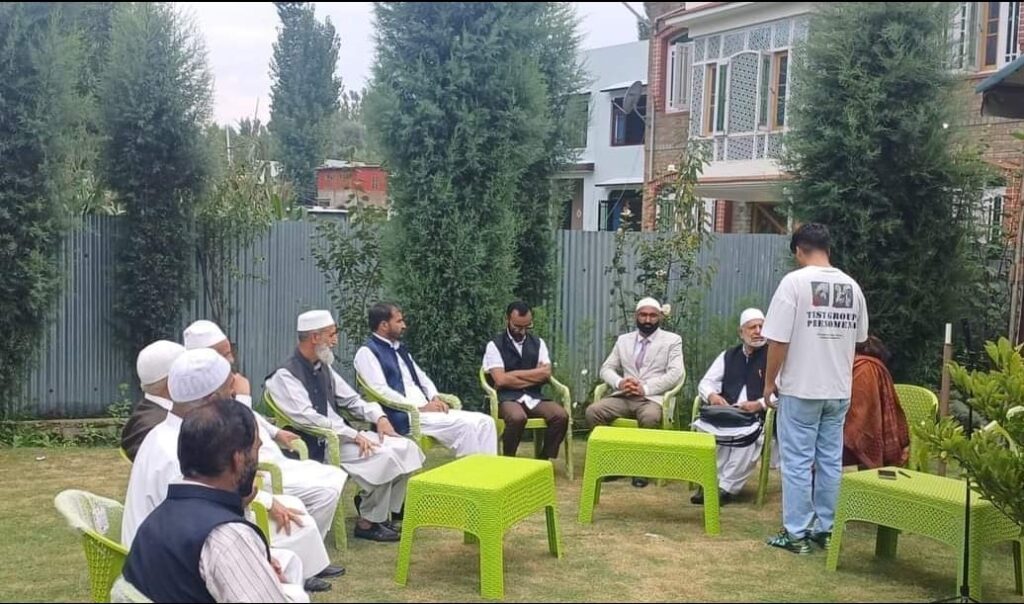
The Panel that Lost
Qazi Ishaq Kashmiri
The BJP-imposed panel on Jamaat has now lost the elections. Most of its candidates, barring one, lost their deposits as well. So, what were the reasons that the panel members were outrightly rejected by the people, including the Jamaat cadre spread in every nook and corner of the valley?
Since some lesser-known and alleged members of Jamaat, including Shameem Ahmad, Sayar Reshi, and Ashraf Driver, began to project themselves as spokespersons of the Jamaat, people started doubting them, their intentions, and the entire negotiation process with the Indian state. When the elections came, the truth was revealed. The problematic statements and even open threats from the panel members made it clear to the common people that it was not actually Jamaat that had, with the consent of its core members, decided to participate in the elections, but rather a group of individuals who had hijacked the organization with the full backing of India’s intelligence agencies.
The organization was taken over in a situation where it was extremely difficult for Jamaat members to come forward and openly confront the panel members. During this period, the former spokesperson of Jamaat was released on bail. After his release, he distanced himself from the panel and refused to bow down to the mounting pressure. Immediately after, he was rearrested and kept in Shaheed Gunj police station, where Shameem and his gang arrived to threaten him—demanding that he either surrender and support the panel’s decisions or face the consequences. It was a moment when a young hijacker was threatening an elderly man who had been part of the organization for many decades. The scene was reminiscent of the mid-90s, when Ikhwanis frequently humiliated elderly people, as well as tortured and killed anyone they perceived as their enemy.
Anyone opposing the panel was forcibly silenced, and in some districts, a few individuals whom the panel considered potential threats to their nefarious designs were jailed on the instructions of the panel members. In private discussions, panel members falsely claimed the support of some important figures associated with the resistance movement. All of this was done to give the impression that everything was in the interest of Jamaat and the people of Kashmir and that it was a decision made by the central committee of the organization.
This treachery was unfolding in front of the eyes of some helpless members of the organization. The Jamaat cadre chose to remain silent, and it was only after the panel members openly crossed red lines, Jamaat issued some press releases where they openly distance themselves from the panel, condemning their betrayal and deception. By then, it was clear that the most revered socio-religious organization in the region had been hijacked.
Then came the elections, and the people of Kashmir, especially the Jamaat cadre, responded. The moment the results were declared, it was clear that the hijackers were facing a humiliating defeat and had been rejected by the people of Kashmir. It is widely believed by the people of Kashmir that the panel members were assured of “winning” or being given some seats by the Indian agencies in exchange for their efforts to hijack the organization. However, the Indian intelligence agencies had other plans: to hijack the organization, turn it into a proxy of the BJP, damage its credibility, and render it irrelevant among the people of Kashmir. For this, they chose individuals who had allegedly been associated with Jamaat and were now fully rogue, willing to do anything for their own vested interests.
It is interesting to note that as soon as the results were announced, the Delhi HC Tribunal confirmed the ban on Jamaat—a decision that had deliberately been kept hidden or simply not revealed until the day of the election results. It is also worth noting that panel members often spoke of lifting the ban when questioned about the unconstitutional decisions they had taken. When the panel members were given a chance to meet Rajnath Singh, it is said that India’s defense minister harshly told them to prove their loyalty and that the decision to lift or impose a ban was up to the Indian courts, not him. Proving their loyalty meant contesting elections and helping the BJP form a government in the region. In other words, it meant doing whatever their superiors wanted, even if it went against the basic principles of Jamaat or the interests of the people of Kashmir.
The dust has now settled to some extent. It is now evident that the panel members have not proven beneficial to Jamaat, despite their boasts in meetings. Rather than realizing that this is the time to stop acting as clients of Indian agencies, the panel members are portraying their actions as some kind of strategic masterstroke.
Editor's Pick

The Dream of a Martyr
The Dream of a Martyr Muhammad Faisal 1979 had begun. Kashmir looked abnormally normal, its calmness

Going the Israeli way
Going the Israeli way Muntaha Kirmani After the 22 April Pahalgam attack, Indian military has gone

South Asia’s Nuclear Flashpoint Has Reared its Head Again!
South Asia’s Nuclear Flashpoint Has Reared its Head Again! Muhammad Iqbal Tantray Kashmir has always been
